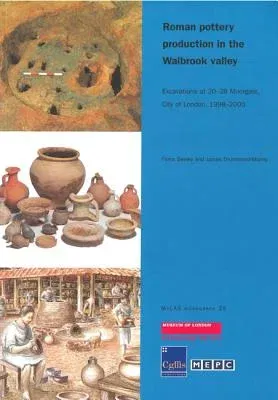Fiona Seeley
(Author)Roman Pottery Production in the Walbrook Valley: Excavations at 20-28 Moorgate, City of London, 1998-2000Paperback, 1 February 2006

Qty
1
Turbo
Ships in 2 - 3 days
In Stock
Free Delivery
Cash on Delivery
15 Days
Free Returns
Secure Checkout

Part of Series
Mola Monograph
Part of Series
Mola Monographs
Print Length
221 pages
Language
English
Publisher
Mola (Museum of London Archaeology)
Date Published
1 Feb 2006
ISBN-10
1901992551
ISBN-13
9781901992557
Description
Product Details
Book Format:
Paperback
Country of Origin:
GB
Date Published:
1 February 2006
ISBN-10:
1901992551
ISBN-13:
9781901992557
Language:
English
Location:
London, England
Pages:
221
Publisher: